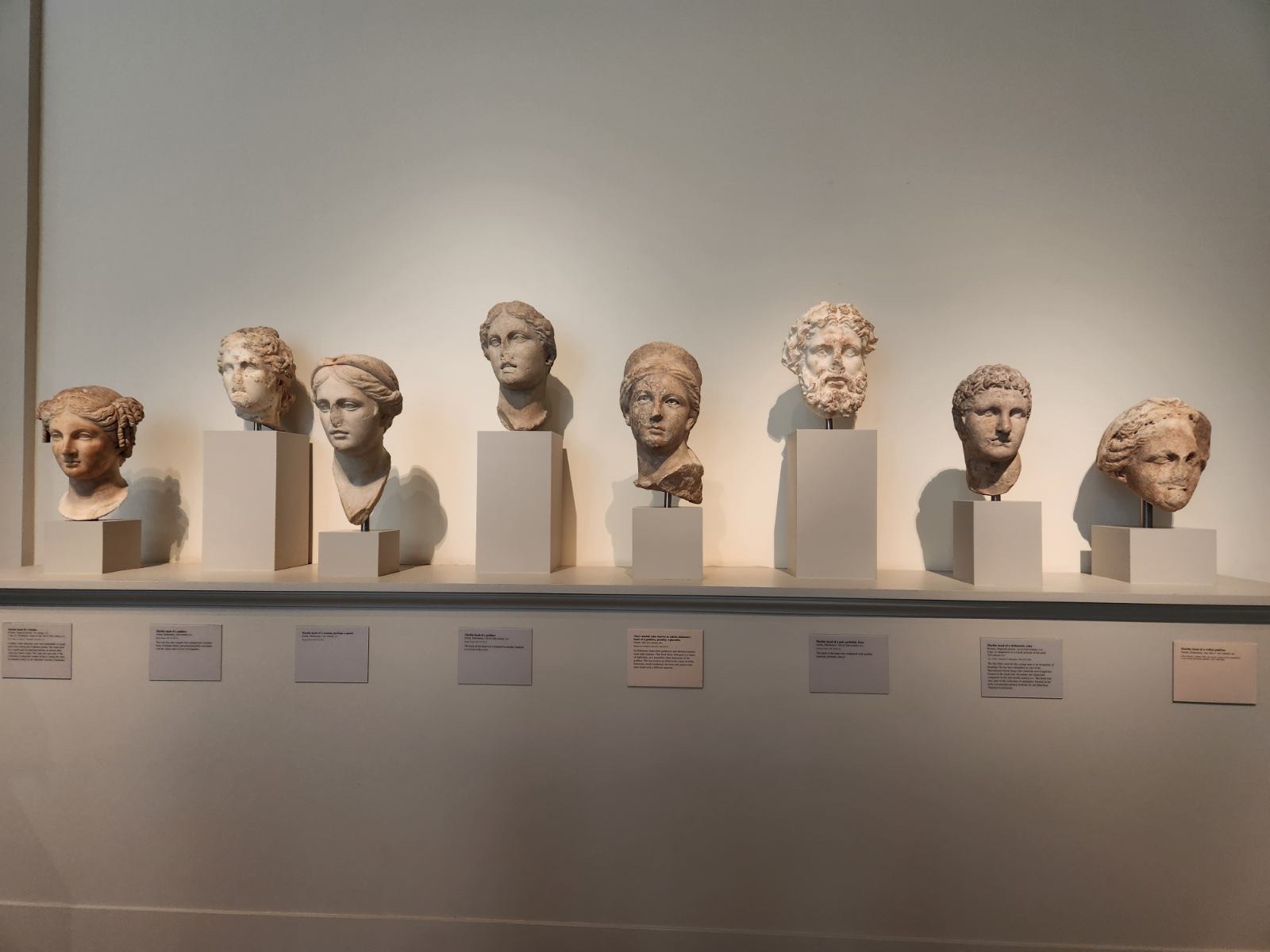
Greek Mythology surrounds today’s culture
People need to know the past to understand the present. Western civilization has origins in ancient myths and much of our world today is created by the ancient world.
Though myths may just sound like stories, they’re so much more.
“When we look at myths from the past, it gives us clues to what people thought of the world around them,” explains history teacher Anthony Lanfrank, “Like physical artifacts, these stories tell us what the past was like.”
In Looking at Artifacts, Thinking About History, Steven Lubar and Kathleen Kendrick explain, “Artifacts are the touchstones that bring memories and meanings to life. They make history real. Moreover, it is a reality that can and should be viewed from different perspectives,” and the same can be said for myths.
“Myths are deeply rooted in all of us, even if we don’t realize it. They can tell us how people used to live, their ideals and morals,” explains long-term mythology enthusiast Morgan Depete-Mcmahon, 12, “With science, we know Apollo and Ra, or any other god doesn’t control the Sun, but this doesn’t take away from what they were and what they have taught us.”
Almost everything has mythology embedded in it somewhere. Artwork, language, literature, names, popular brands, sports, and space are just a handful of examples.
Art around the world from the past and present have been inspired by mythology.
Famous paintings such as The Birth of Venus by Sandro Botticelli, Prometheus Bound by Peter Paul Rubens, and The Fall of Icarus by Jacob Peter Gowy are all inspired by Greek mythology.
Stories provide artists with countless inspiration and symbolism to use within their artwork. There are countless versions of different myths which allow for many different interpretations.
Myths can be found in nearly every culture, so there’s always material for artists to use.
It’s rare for art prehistoric to survive to the present day, but those that have are incredibly valuable.
Places like the Metropolitan Museum of Art, the Borghese Gallery and Museum, the Brooklyn Museum, the Acropolis Museum, and many more, hold artwork and artifacts from across the ancient world.
Museums are meant to preserve, share, and protect artifacts. These artifacts can be paintings, statues, jewelry, armor, pottery, grave markers, and much more from across many cultures.
The Metropolitan Museum of Art has sections for Greek, Roman, and Egyptian artifacts that are all considered to be some form of art. Many of which depict something from mythology.
Language and writing have been greatly impacted by the past.
The English language is rooted in ancient history. According to How has Greek influenced the English Language by Martha Peraki and Catherine Vougiouklaki, over 150 thousand words originated in ancient Greece.
For example, the beginning of the word “Arachnophobia” comes from the Arachne, a woman-turned spider in Greek mythology. The Greek word “phobia” means “fear of” as explained by Rosemary Black in Arachnophobia: Fear of Spiders and How to Overcome It.
Literature from ancient Greece like Homer’s Iliad and Odyssey have inspired literature across the world.
“There’s a theory that every piece of literature is either an Iliad or an Odyssey (either a fight with sacrifice or a journey),” states Depete-Mcmahon, “It’s an ever-growing behemoth of knowledge, all of which stems from other pieces of literature. ”
Gonzaga University claims, “The Greeks and Romans invented nearly every literary genre that exists today … the Classics were so central to education for so many centuries, later authors and artists are deeply indebted to the works of the ancient Greeks and Romans.”
Authors often use references to myths in their writing. It’s common in symbolism and allusions, like the olive branch and Achilles’ Heel, but at times mythological characters are also used in stories.
Shakespeare “took preexisting myths and wrote them in a way that suited the culture of Elizabethan England,” explains Shakespeare Comes Alive.
Modern books like The Song of Achilles by Madeline Miller and The Silence of The Girls by Pat Barker, retell myths by telling the same story from a different point of view. The same characters are used, but the hero in one is the villain in the other.
Other authors modernize myths. The Percy Jackson and the Olympians series by Rick Riordan is Greek mythology set in today’s world. Riordan retells the classic myths with his contemporized characters. He incorporates ideas such as Mount Olympus being the Empire State Building, gods in modern fashion trends, and the use of modern media.
Lanfrank points out, “They use Greek gods in DC, like Wonder Woman. She’s an Amazon who fights the Greek gods. Ares, the god of war, was one of her greatest enemies.”
Comic books, like Marvel’s Thor, rework myths into a super-human world using mythological figures to make them the heroes and villains.
In Harry Potter books, JK Rowling references mythology by character names.
Remus Lupin, a werewolf, is named after one of the legendary founders of Rome that a wolf raised.
Characters from The House of Black, including Sirius, Draco, Andromeda, and Bellatrix, are named from constellations that originated from mythology.
Your name may also come straight from a Greek or Roman myth.
People named Jason share a name with the leader of the Argonauts. Girls named Penelope share a name with the hero Odysseus’s wife. People named Troy acquire their names from the city of Troy which is in current day Turkey.
The name Diana belongs to the moon goddess and girls named Victoria share a name with the Roman goddess of victory.
Some popular brands have also adopted names from mythology. Next time you order something from Amazon, know that the company is named after a group of women warriors from Roman myths.
“People see things based on mythology every day, from the Starbucks symbol to a tattoo someone has. We have seen a recurrence, especially in the Greek myth department, of newer books and media,” says Depete-Mcmahon.
The shoe brand Nike gets its name from the Greek goddess of victory and Pandora Music comes from the first woman in Greek myths, Pandora.
The Olympics were originally held every year as a tribute to Zeus.
Though the sporting event is no longer a tribute to the god of thunder, many old traditions are still used today such as the lighting of the Olympic flame and the opening/closing ceremony.
When The Olympics began again they paid homage to the event’s origins.
According to Alexis Belis in The Ancient Olympics and Other Athletic Games, “The opening ceremony for the first modern Olympics took place in Athens in the Panathenaic Stadium, originally constructed in the fourth century B.C., which had been restored for the occasion.”
From a mythological point of view, the gods participated in the first-ever Olympics, but it was the hero Herakles who often gets credited as its founder.
Some sports teams are named after Greek myths like the Tennessee Titans who are named after the mythological Titans.
Mythology has edged its way into history more permanently through outer space.
“Forty-eight of the constellations are known as ancient or original, meaning they were talked about by the Greeks and probably by the Babylonians and still earlier peoples,” explains Joe Rao in How the Night Sky Constellations Got Their Names. That’s over half of the officially recognized constellations.
The Greek astronomer Ptolemy charted those forty-eight stars and named them after Greek figures.
“It was Greek philosophers that named the constellations, so keeping the tradition of mythological names for space is kind of like human heritage,” expressed Lanfrank, “Paying homage to the Greeks that named the stars.
Orion is named after Artemis’ friend who was killed by Zeus or Apollo using a scorpion. This is also the story behind the Scorpio zodiac sign.
The other star signs have stories from mythology as well.
The Greek Origin of Zodiac Signs in Astrology by Luis Ospino explains Aries is connected to Mars, the god of war, and the story of Jason and the Argonauts. Taurus is connected to Venus, the goddess of love, and the story of Europa. Gemini is connected to the god of thieves, Mercury, and the twins Castor and Pollux.
More so, every planet except for Earth is named after a Roman god or goddess. The space missions Apollo 13 and the Artemis mission are as well.




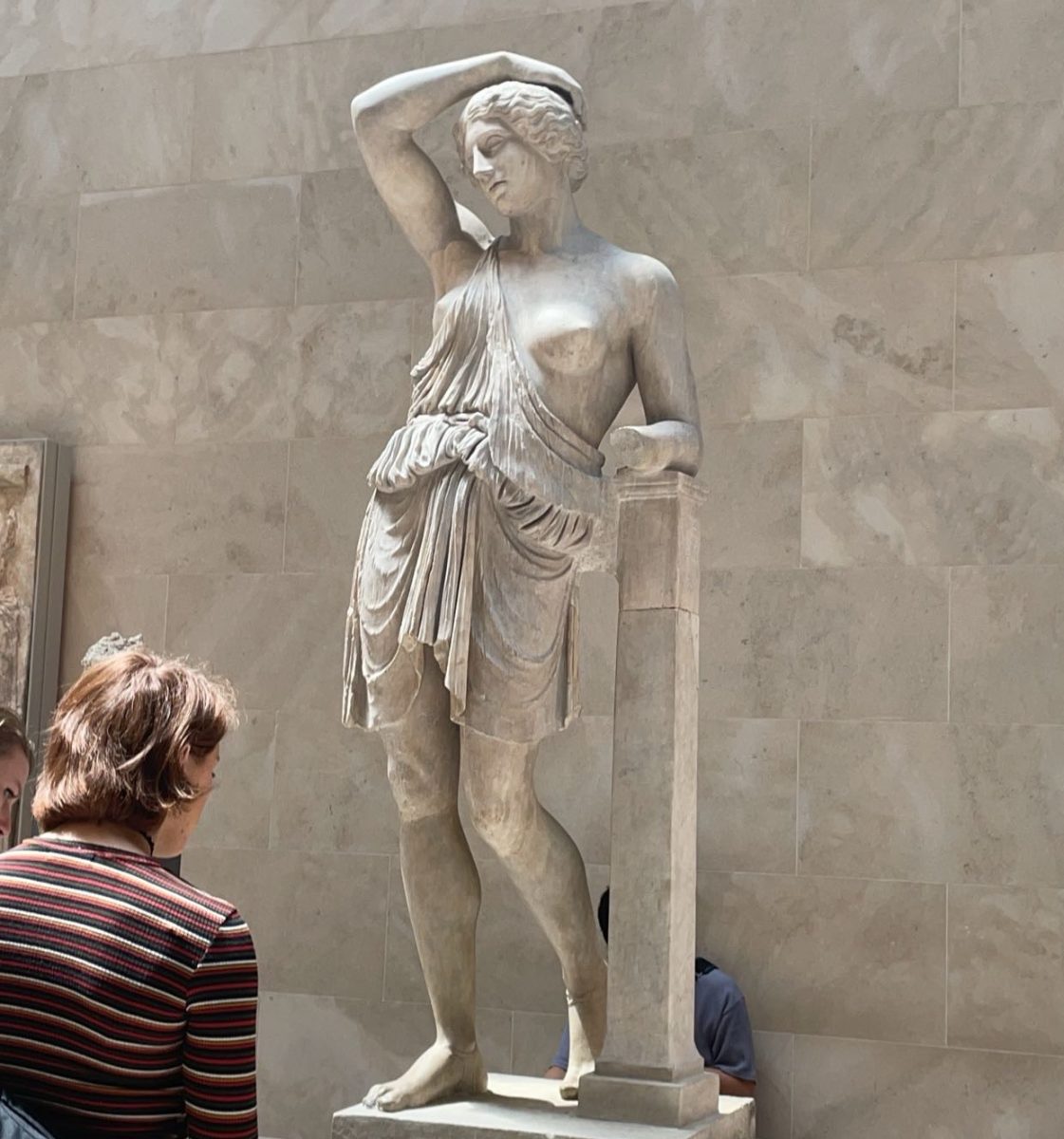
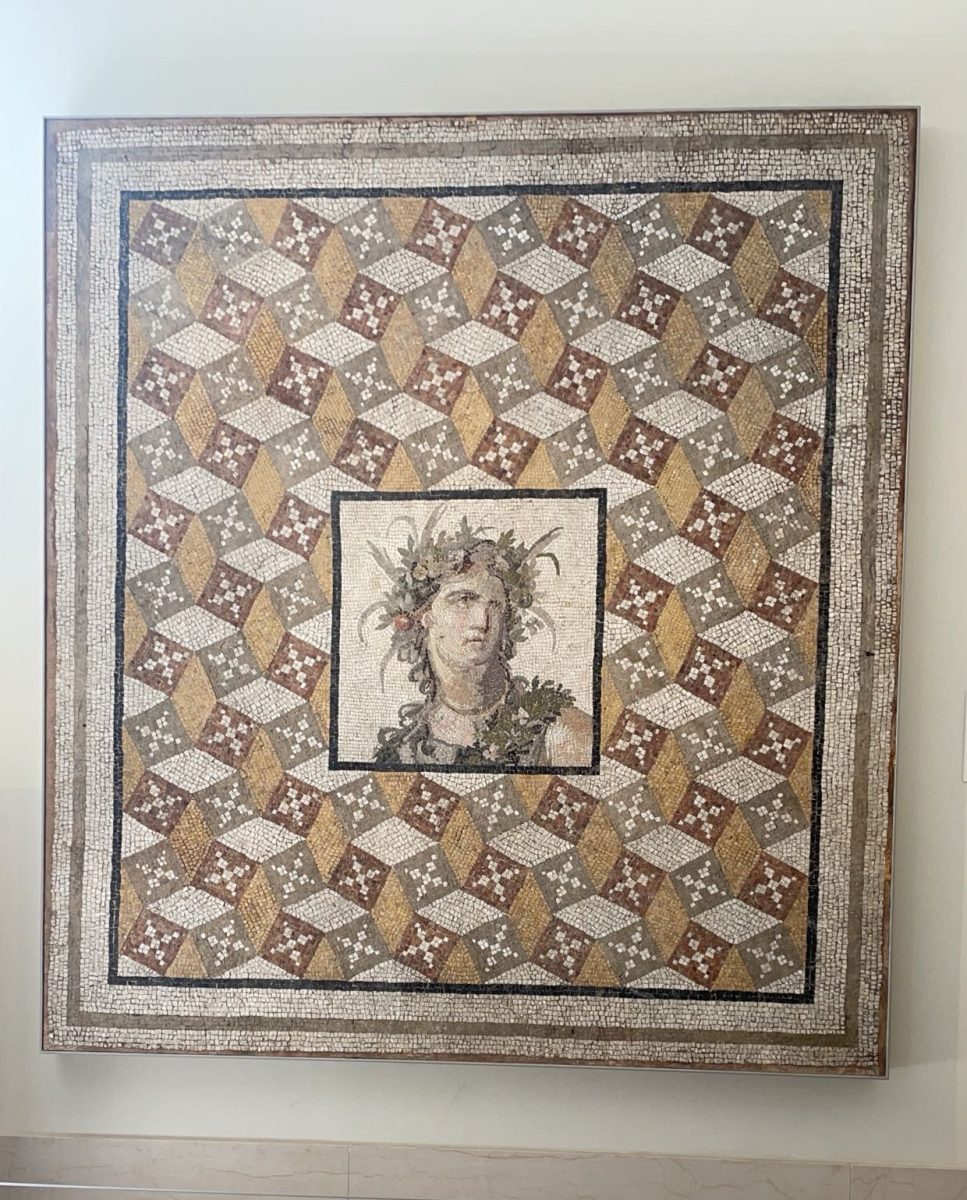
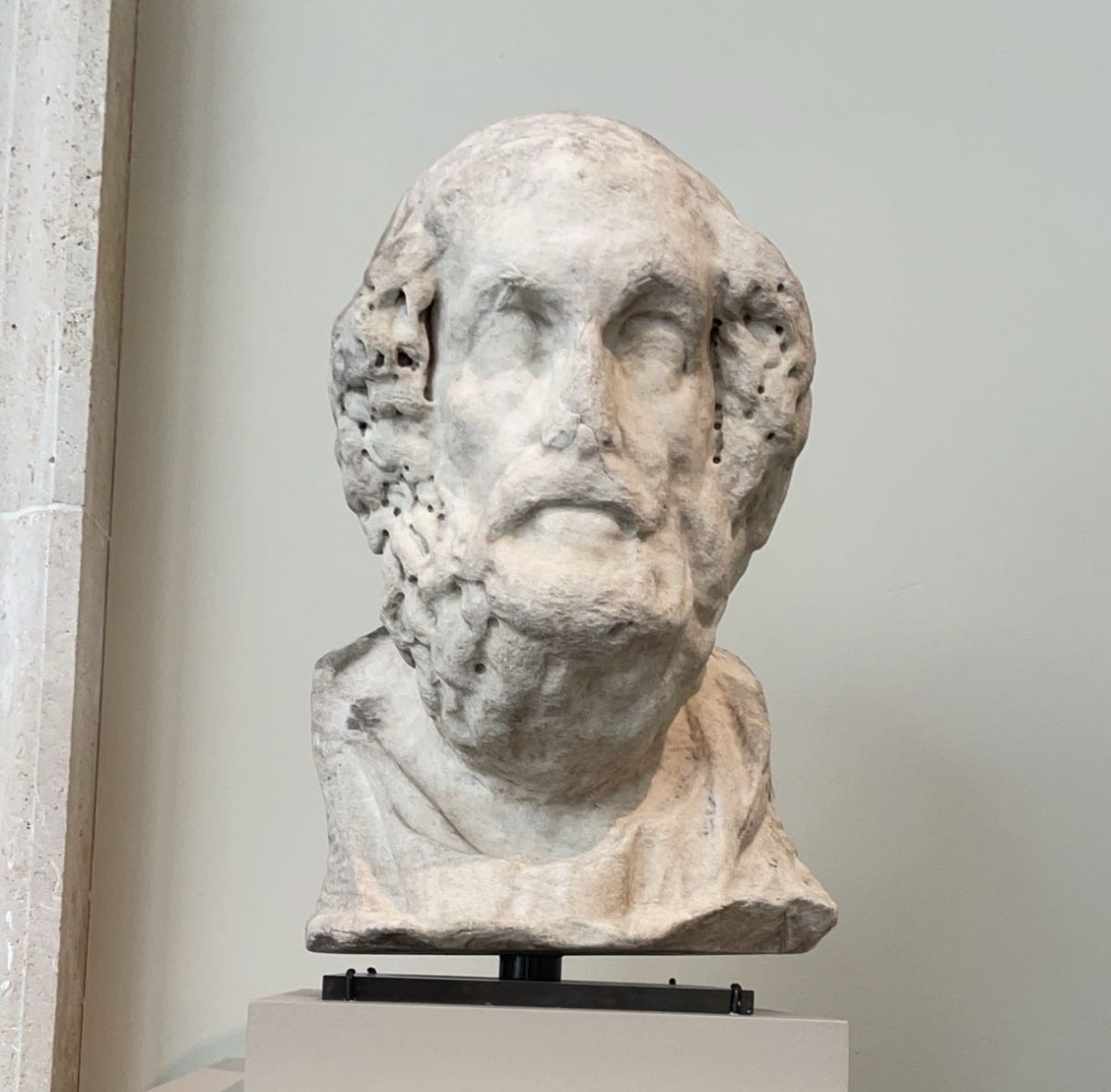
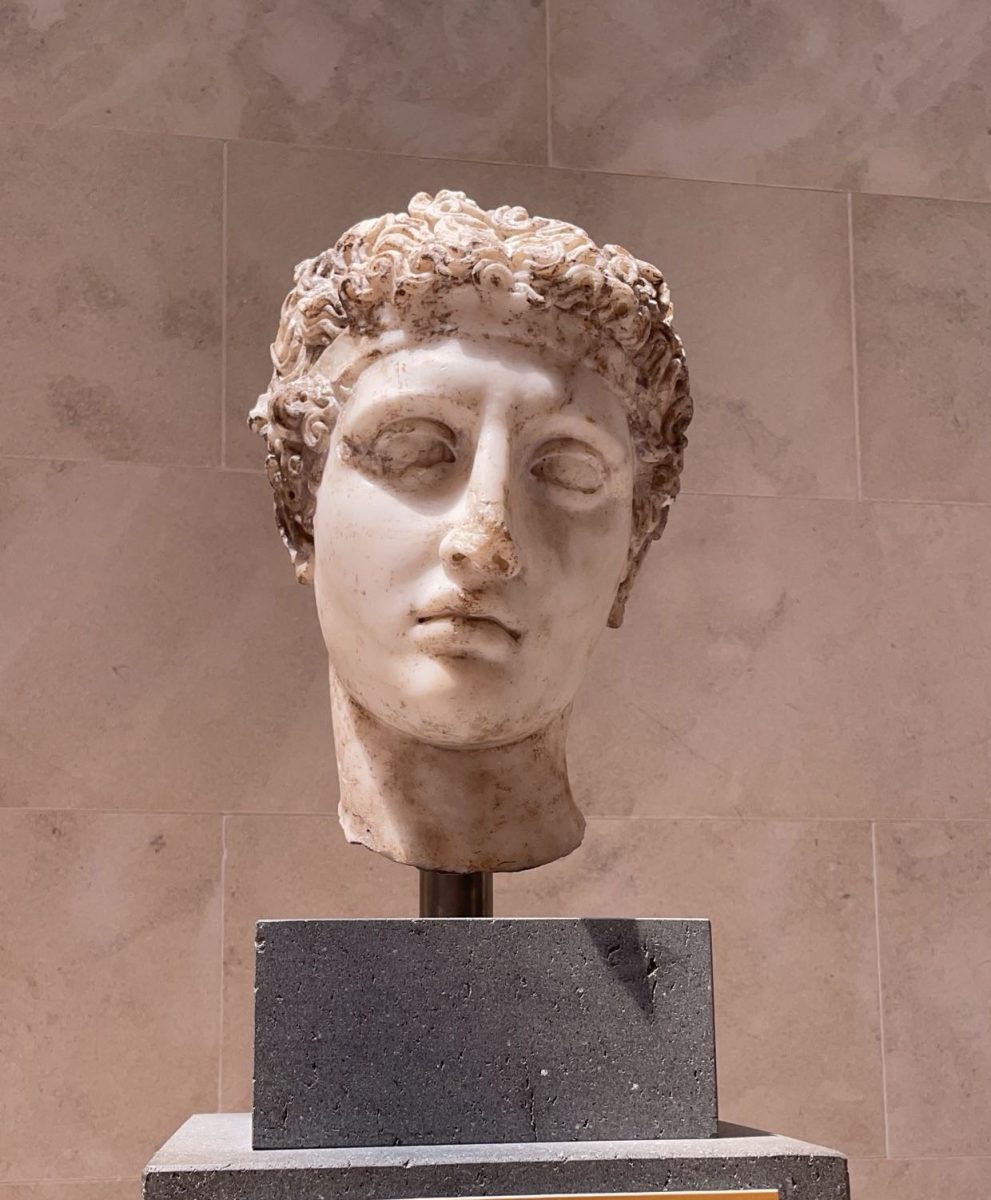

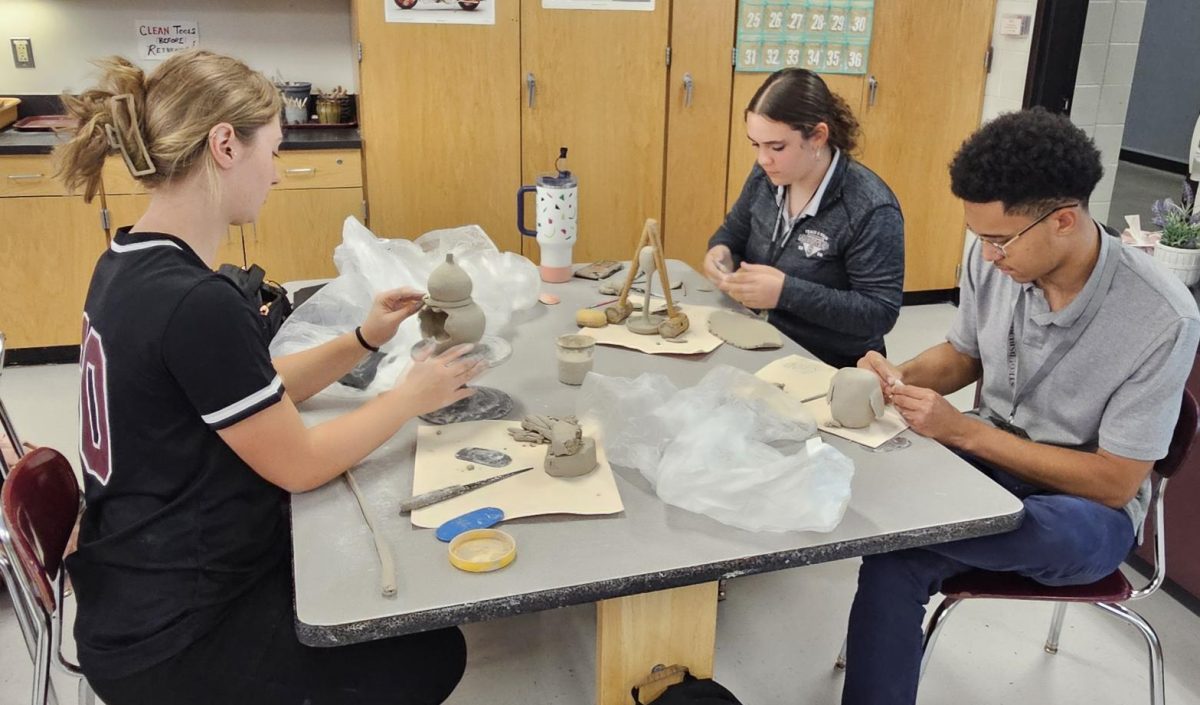



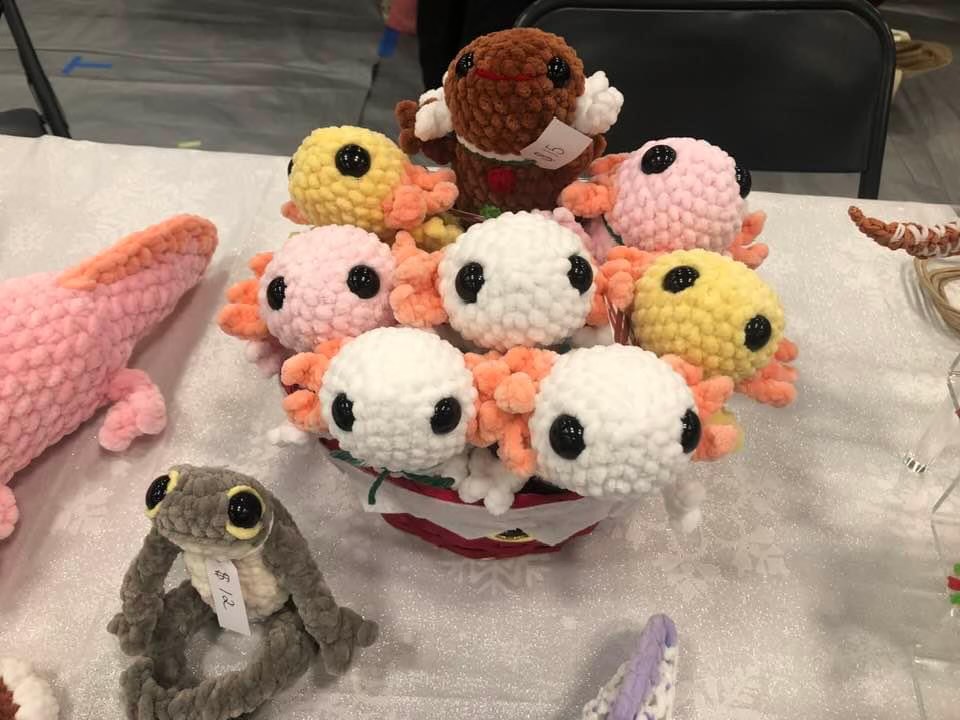






Mia Marga • Feb 23, 2024 at 10:12 AM
Very informative and the layout is beautiful! I also love the pictures taken!
Amie Garcia • Feb 9, 2024 at 11:19 AM
I love the setup, it is well-organized! :)
Quinn Stravach • Feb 9, 2024 at 9:55 AM
I love the layout and organization of this article. History is one of my favorite things to learn about and reading about the connections to today’s culture was very interesting. I’d love to see more articles about different types of mythology, like a series, because Celtic mythology has been on my mind lately and this article was really great. Amazing job Olivia
Janel Meyers • Feb 9, 2024 at 9:55 AM
I think this is fantastic but maybe also include for the name Diana that it is Roman because you mention it for the name Victoria but for Diana and Victoria, the Greek versions are Artemis and Nike. However, overall, fantastic work. I was just picky about that because you stated that only Victoria is Roman and could be misleading for the name Diana.
mir • Feb 9, 2024 at 7:48 AM
I love how you started this article it is very interesting and caught my eye immediately. (I haven’t read the entire thing but I swear I’m going to).
Jasmin • Feb 9, 2024 at 7:47 AM
very interesting
Jessica • Feb 9, 2024 at 7:46 AM
This is amazing great work olivia!!
Norah McCabe • Feb 8, 2024 at 2:17 PM
This is so interesting! I never knew how much Greek mythology has influenced us.
Iro Bonellis • Feb 8, 2024 at 1:07 PM
This is very insightful! I love how each section goes in depth about Greek culture.
madisen dullen • Feb 7, 2024 at 12:56 PM
very interesting and informative!!